Fragrant zongzi leaves fluttering -Exploring the folklore and cuisine of the Dragon Boat Festival
Soon, China will welcome the traditional festival of the Dragon Boat Festival! Each year on the fifth day of the fifth month of the lunar calendar, households come alive with joyous celebrations. On this day, not only can one savor the delicious zongzi, soft, sticky, and sweet, but also witness or participate in the exhilarating dragon boat races, a spectacle to behold! Are you interested in the stories and traditions behind the Dragon Boat Festival? This article will provide you with a detailed introduction!
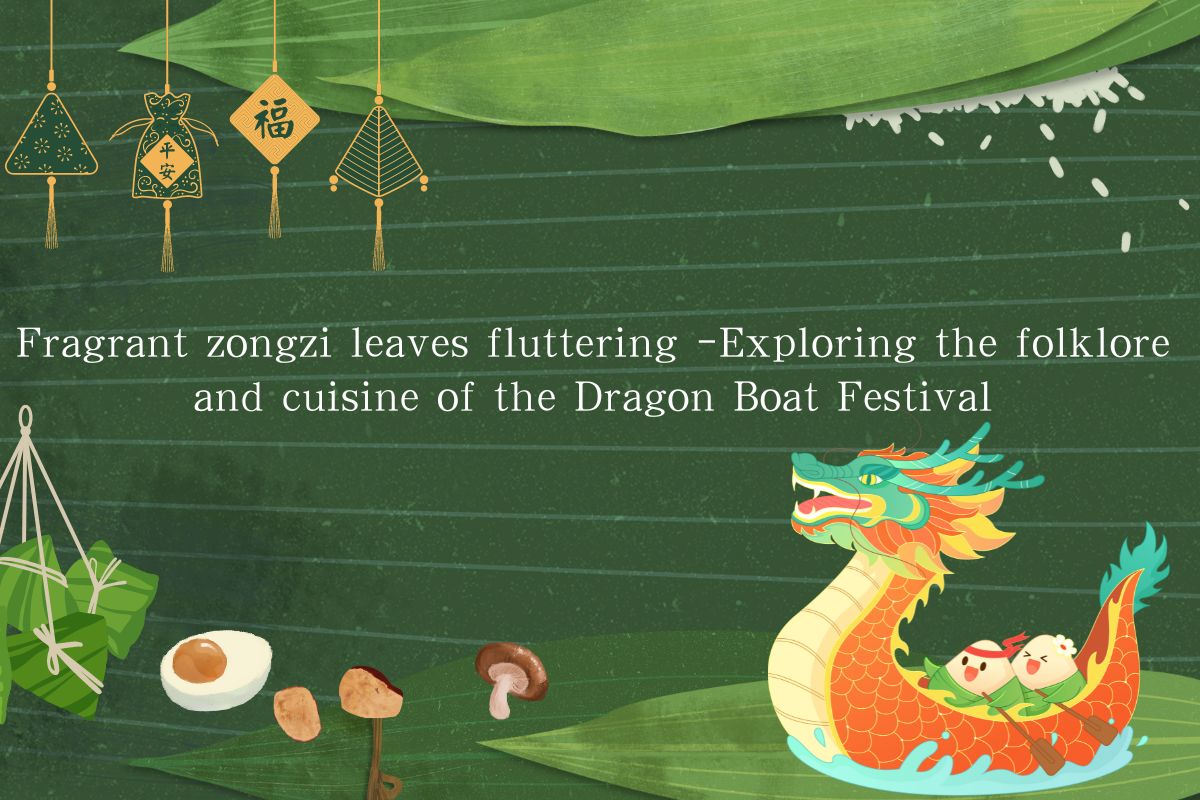
The Origin of the Festival
During the Warring States period, there was a great poet and statesman named Qu Yuan. He was a loyal minister of the State of Chu, gifted with talent, and greatly trusted by King Huai of Chu. Qu Yuan advocated for an alliance with the State of Qi against the State of Qin, hoping to make Chu stronger. However, his political enemies, envious of his abilities, continuously badmouthed him in front of King Huai, leading to Qu Yuan's exile. Qu Yuan was banished to a remote place, but his love for the country never wavered.
Upon learning of the occupation of Chu by the State of Qin, Qu Yuan was overwhelmed with grief. On the fifth day of the fifth lunar month, he threw himself into the Miluo River to sacrifice himself for his nation. Upon hearing the news, the local villagers rowed small boats to salvage Qu Yuan's body. To protect his body from being devoured by fish and shrimps, people threw rice dumplings and eggs into the river as offerings. Since then, every fifth day of the fifth lunar month, people row dragon boats and eat zongzi to commemorate this loyal poet.
Interesting Customs
Eating Zongzi
The tradition of eating zongzi during the Dragon Boat Festival is well-known! This custom dates back to ancient times when zongzi was first offered as a gift to ancestors and deities.
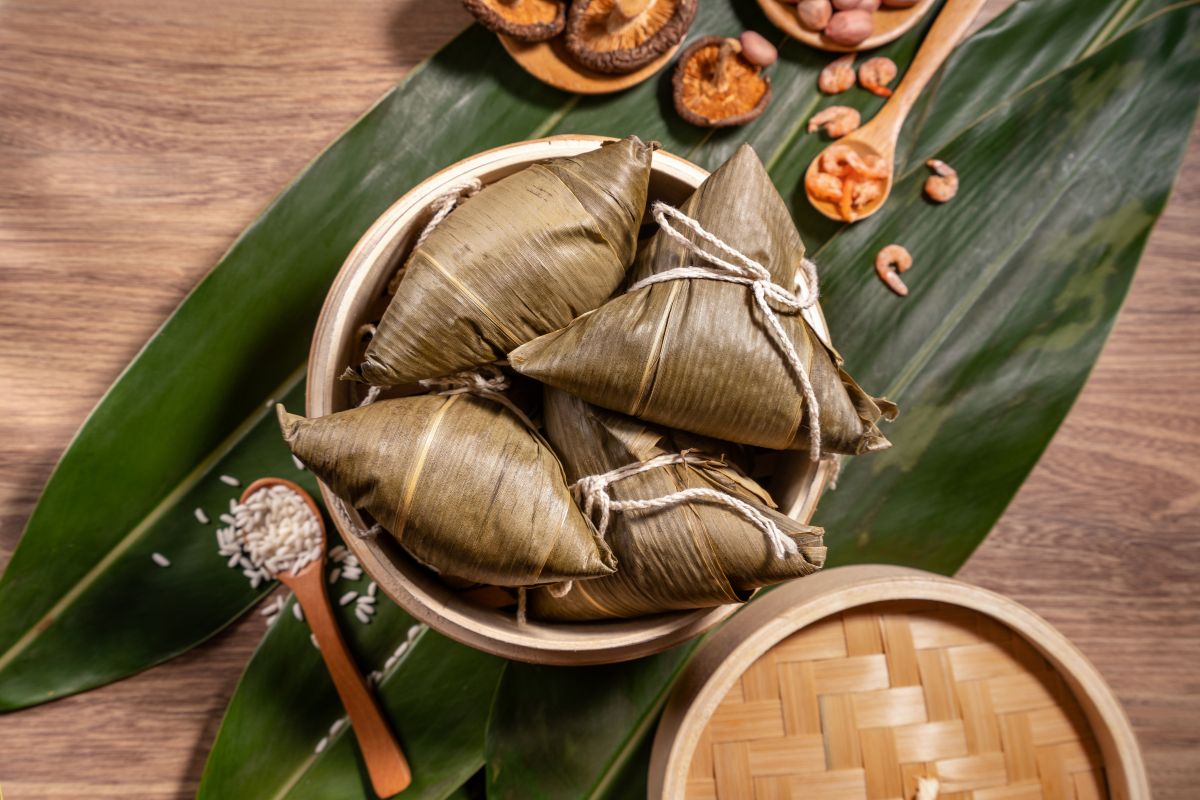
The making of zongzi is meticulous, primarily using glutinous rice as the base, combined with various delicious fillings 馅料 (xiàn liào) such as sweet bean paste, red dates, or savory meat and salted egg yolks. Wrapped in bamboo leaves or reed leaves and steamed, zongzi comes in various shapes - triangular, square, or cylindrical. Zongzi flavors vary by region, ranging from sweet to savory, with a type to suit every palate.
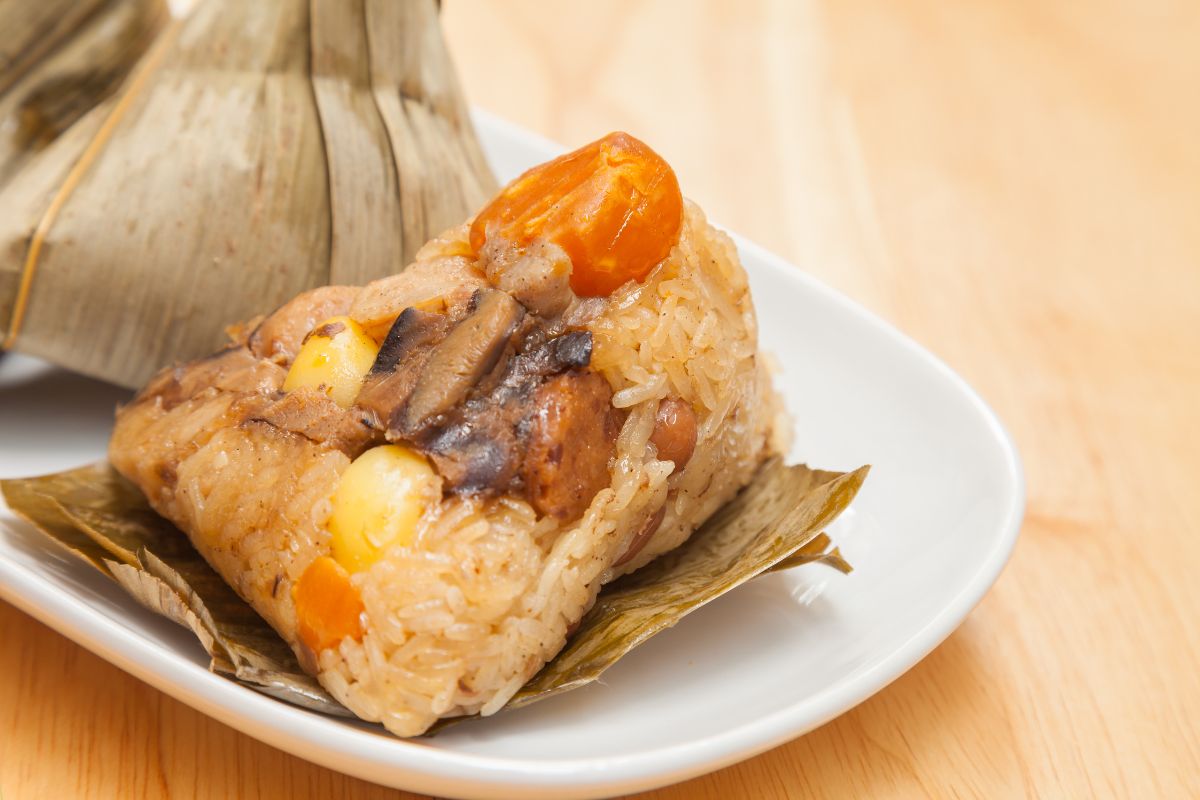
馅料 (xiàn liào), noun, fillings
Examples:
- The fillings can be either meat or vegetables.
馅料可以是肉或蔬菜。
xiàn liào ké yǐ shì ròu huò shū cài 。 - I like sweet fillings.
我喜欢吃甜的馅料.
wǒ xǐ huɑn chī tián de xiàn liào。
Dragon Boat Racing
As the name suggests, a dragon boat mimics the appearance of a dragon from Chinese mythology - long and slender, with a dragon head at the front and a dragon tail at the back. Embellished with dragon scale patterns on both sides, the boat is vividly lifelike. In reality, it is a wooden boat, and dragon boat racing is a type of rowing competition.
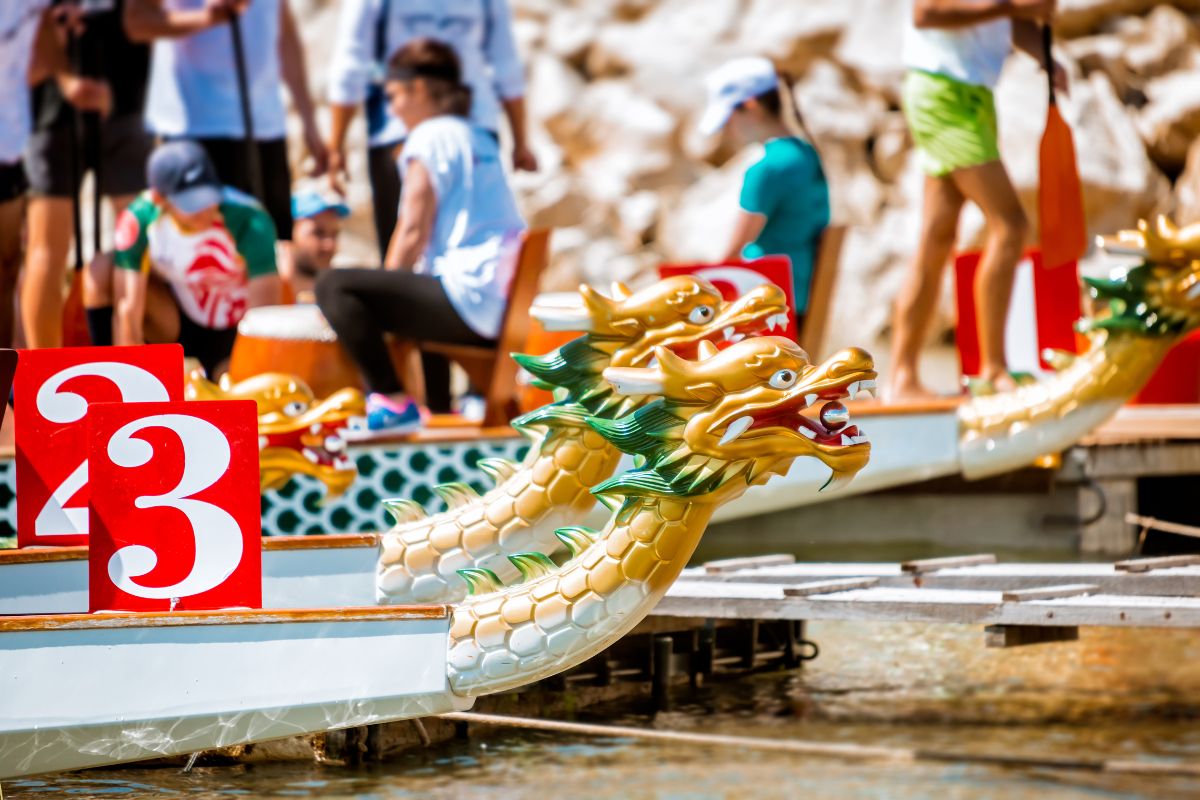
It is said that after Qu Yuan's sacrificial leap, local people rushed out in boats hoping to save him or at least find his body. They beat drums and gongs to drive away fish and shrimp, preventing them from disturbing Qu Yuan's body. Since then, every fifth day of the fifth lunar month, dragon boat races are held to commemorate 纪念 (jì niàn) Qu Yuan, a tradition passed down as a significant part of the Dragon Boat Festival.
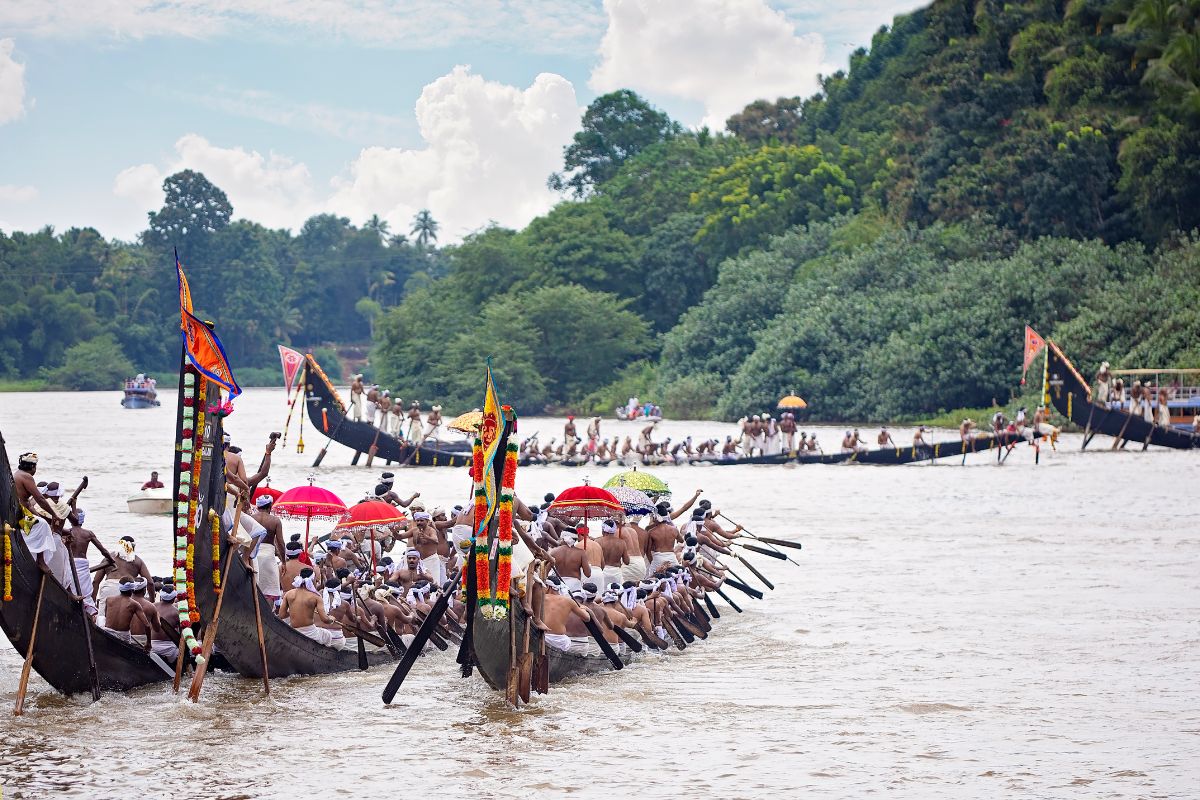
纪念 (jì niàn), verb, commemorate
Examples:
- The Dragon Boat Festival is to commemorate Qu Yuan.
端午节是为了纪念屈原。
duān wǔ jié shì wèi le jì niàn qū yuán 。 - People laid flowers to commemorate the fallen heroes.
人们为逝去的英雄献花去纪念他们。
rén men wéi shì qù de yīnɡ xiónɡ xiàn huā qù jì niàn tā men 。
Artemisia and Calamus
On the Dragon Boat Festival, households hang artemisia and calamus on doors and windows. Elders say that these plants help ward off negative influences, ensuring the well-being of the family. The aroma of artemisia acts as a mosquito repellent, while the sword-shaped calamus leaves give off the impression of expelling evil spirits. By combining artemisia and calamus, it is like hanging a big "amulet" on the home, symbolizing peace, health, and prosperity for everyone in the family.
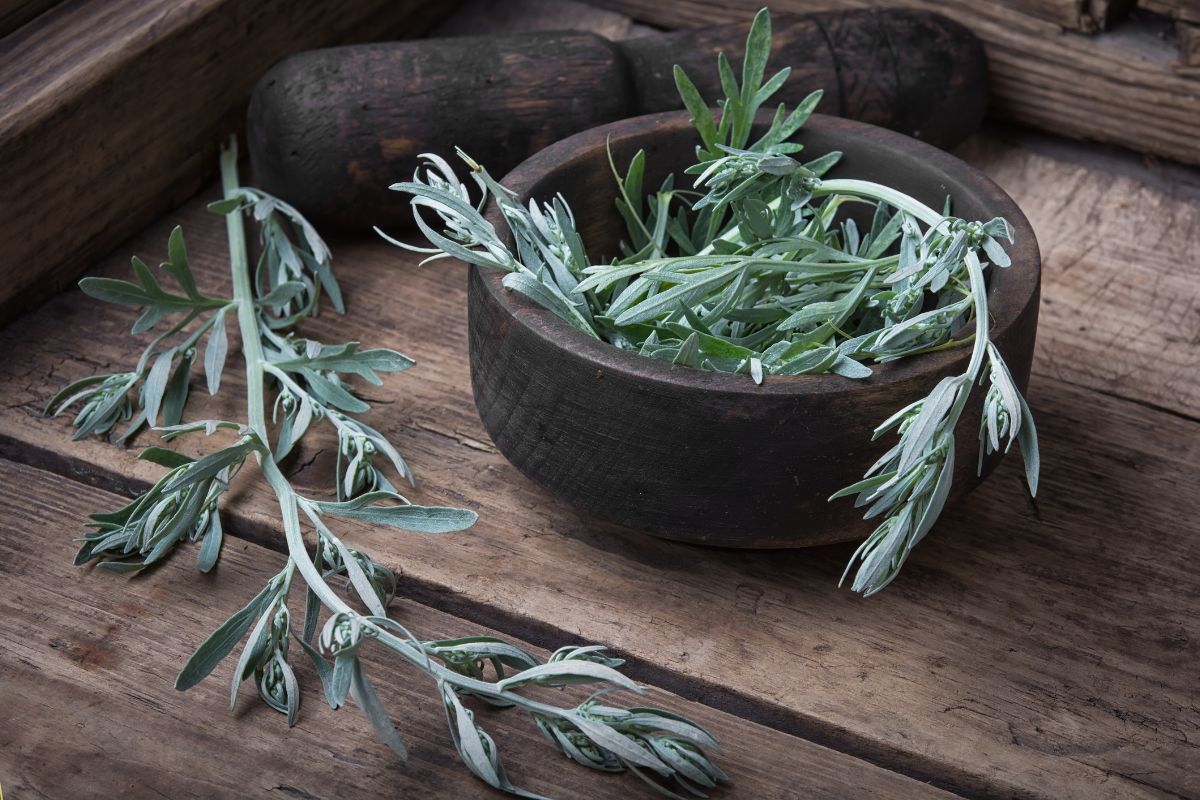
Modern and Fun Festive Celebrations
Today, people are no longer limited to traditional sweet and savory flavors; they are enthusiastic about innovating zongzi fillings. Varieties such as ice cream zongzi, coffee zongzi, durian zongzi, and even healthy, low-sugar mixed grain zongzi cater to different tastes. Furthermore, in the digital age, people can experience the joy of dragon boat racing at home, participating in online dragon boat competitions through their phones or computers. This safe and convenient method allows individuals to compete with global players and test their skills! Moreover, people combine the tradition of artemisia, calamus with modern home decorations, creating a blend of both traditional and stylish festival ambiance, such as artemisia scented candles, calamus decorations, and more.
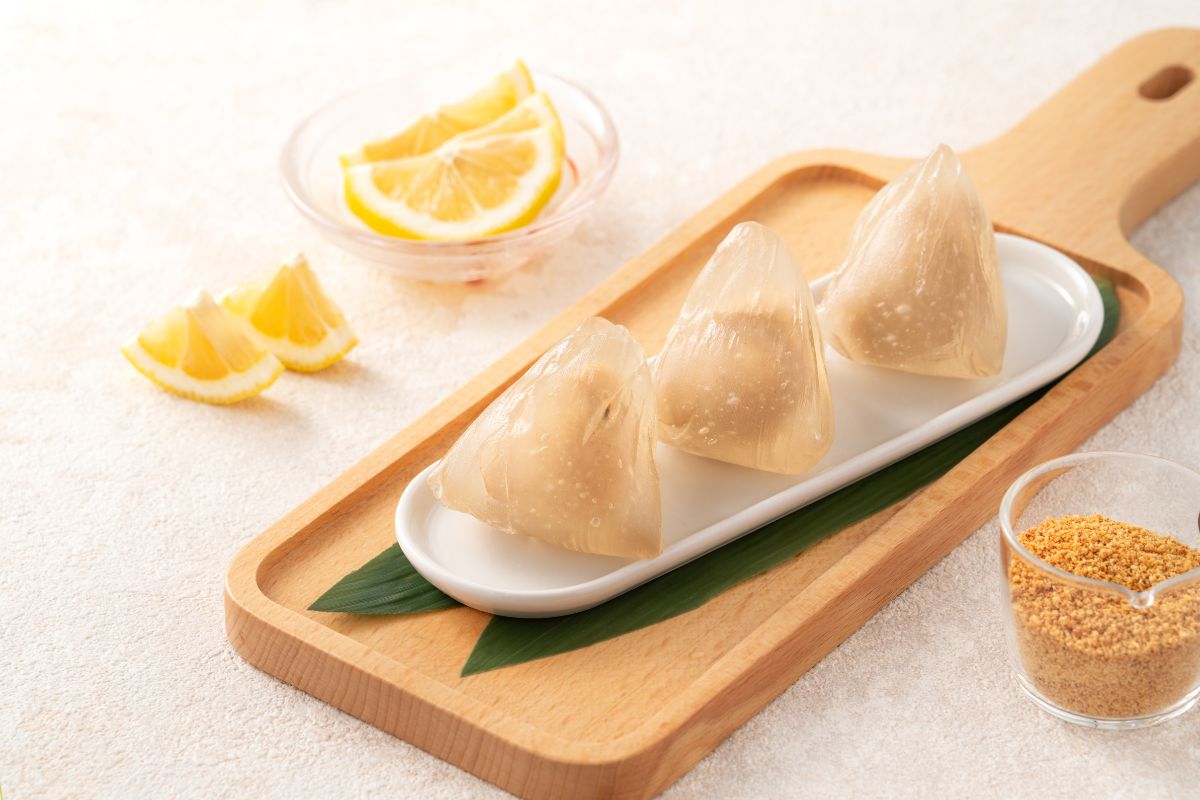
This Dragon Boat Festival, whether through traditional zongzi and dragon boat races or modern innovative ways of celebration, embodies rich cultural significance and enjoyment. Let us embrace the collision of tradition and innovation on this special day as the traditional Dragon Boat Festival takes on a vibrant and profound celebration in contemporary times. Wishing everyone a happy and safe Dragon Boat Festival! Peace and good health to all!